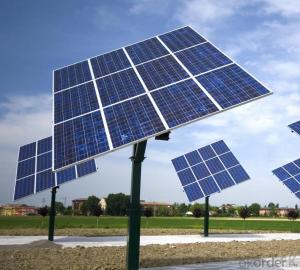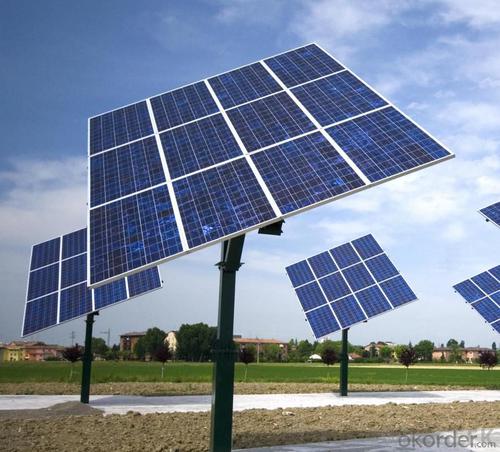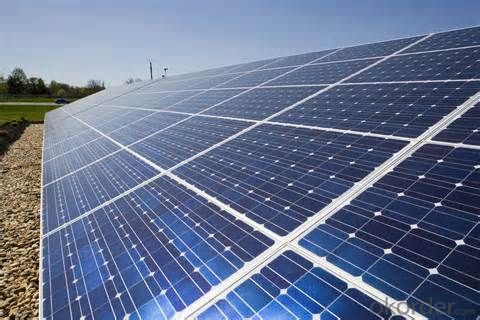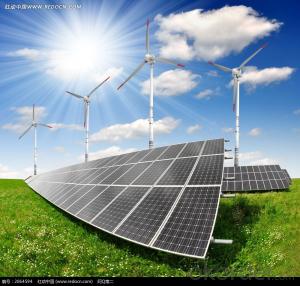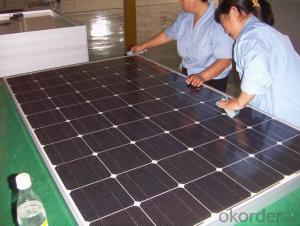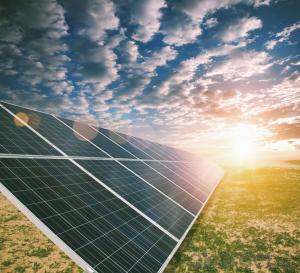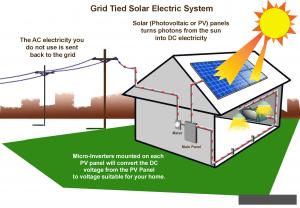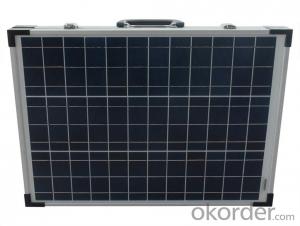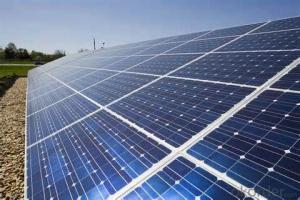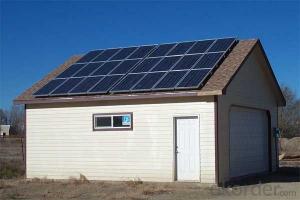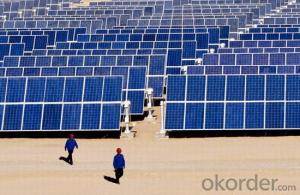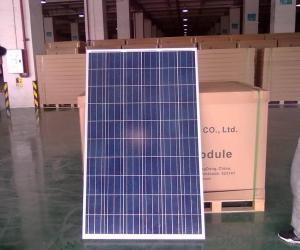Lumen Solar Panels - Polycrystalline Solar Panels 120W with High Efficiency
- Loading Port:
- China main port
- Payment Terms:
- TT OR LC
- Min Order Qty:
- 1000 watt
- Supply Capability:
- 1000000 watt/month
OKorder Service Pledge
OKorder Financial Service
You Might Also Like
Specification
Introduction of Poly solar panels CNBM
Polycrystalline Solar Panels 120W With High Efficiency
CNBM Solar photovoltaic (PV) Panel is designed for large electrical power requirements. It is the optimal choice for both on-grid and off-grid power systems. CNBM Solar panel offers high performance of power per square foot of solar array. Monocrystalline silicon(c-Si): often made using the Czochralski process. Single-crystal wafer cells tend to be expensive, and because they are cut from cylindrical ingots, do not completely cover a square solar cell module without a substantial waste of refined silicon. Hence most c-Si panels have uncovered gaps at the four corners of the cells.
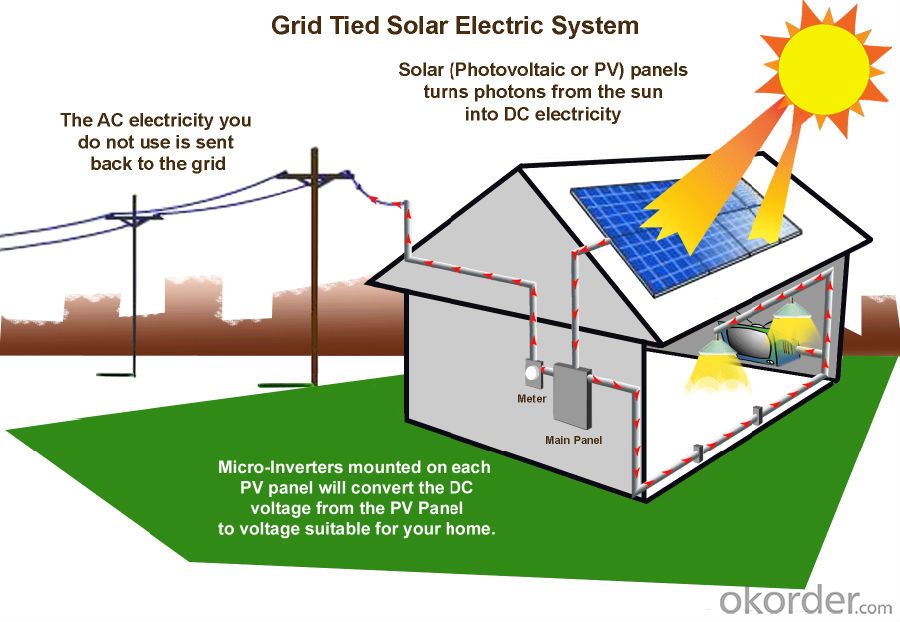
Feature
1.Solar Cell : High efficiency crystalline solar cell. Even if under the weak light, the solar module can produce maximum power output.
2.Tempered glass (toughened glass): Anti-reflecting coating and high transmission rate glass increase the power output and mechanical strength of solar module.
3.EVA and TPT: Using high quality EVA and TPT to prevent destroying and water.
4.Long lifetime: ≥25 years; Less power decrease.
5.Resisting moisture and etching effectively, not effected by geology.
6.The certificate issued by international authority: UL, TUV, IEC, VDE, CE.
Main Solar Panel Specification
Characteristics of Poly solar panels CNBM | |||||
Max Power Voltage Vmp(V) | 30.3 | 30.8 | 31.1 | 31.4 | 31.85 |
Max Power Current Imp(A) | 7.60 | 7.64 | 7.73 | 7.81 | 7.85 |
Open Circuit Voltage Voc(V) | 36.1 | 36.6 | 37 | 37.3 | 37.68 |
Short Circuit Current Isc(A) | 8.50 | 8.55 | 8.65 | 8.75 | 8.85 |
Max Power Pm(W) | 230W | 235W | 240W | 245W | 250W |
Temperature Coefficient of Cells Poly solar panels CNBM | |
NOCT | 45℃ ± 2℃ |
Temperature Coeffucients of Isc (%/℃) | 0.0492 |
Temperature Coeffucients of Voc (%/℃) | -0.3374 |
Temperature Coeffucients of Voc (%/℃) | -0.4677 |
Mechanical Data of Poly solar panels CNBM | |
Dimension | 1638 × 982 × 40 mm |
Weight | 19.5 kg |
No. of Cells and Connections | 60 (6 ×10) |
Tolerance | 0 ~ + 5 W |
Cell | Monocrystalline Cell 156 × 156 mm |
Packing | 624 Pcs/40ft(H) Container |
Limits of Poly solar panels CNBM | |
Operating Temperature | -40℃ to +85℃ |
Storage Temperature | -40℃ to +85℃ |
Max System Voltage | 1000VDC(IEC) / 600VDC(UL) |
Guarantees of Poly solar panels CNBM | |
Products Guarantee | 12 yrs free from defects in materials and workmanship |
Performance Guarantee | No less than 90% within 10yrs and no less than 80% within 25yrs |
Certificates | TUV(IEC61215&IEC61730),VDE(IEC61215&IEC61730),UL,CE |
Packaging Information
Package:26pcs/box
Quantity:1 box/pallent
Loading Capacity:952pcs/40ft
- Q: Solar panels which is the one produces the power...I wanna the complete description about it...
- If your meter is actually running backwards, then you already have a credit. You must have a huge system, or not use much power at all. Most systems I have seen will at best just cut some percentage of the power used, primarily because the system only produces peak a few hours a day and power is being used 24/7.
- Q: I know that one LED can't power a solar panel. I have found 40 kmcd LED's on OKorder. I know that several of them (28 totale each one with a 470 ohm resistor all at 2 VDC) can show a reflection on a wall in daylight 60 feet away..
- I okorder /
- Q: can a small solar panel be charged with lamps?
- yes, although charged is the wrong term. But for every 00 watts you put into the lamps, you will get well less than 0 watts out of the solar array. Well less. .
- Q: I need to reduce the average monthly home electricity bill by powering some of the household appliances using solar panels. Can I use a 250 watt solar panel to power a medium sized upright fridge?
- Well you might reduce your bills, but you wont get your capital back for many years. Do you have LED lighting, I have, every-time one of my compact flourescent bulbs blew I would replace it with an LED, after two years most of my lighting is LED, a good investment I think. What devices do you have, heating and cooking is better with gas (much cheaper) Think about better insulation for wintertime.
- Q: if so, would it be possible to make (or remake) an organism that could subsist off of sunlight and external heat like plants?
- Plants and algaes and cyanobacteria already exist. What exactly do you want?
- Q: They have been around long enough to be cheaper. Unless they are made out of a natural material that is rare and hard to find, there is no reason why they should be so expensive. On another note, I think that all low power devices like cell phones and even laptops should have solar panels. Even if it is not enough to fully power the device for a long period of time, it will provide some electricity savings and with millions of people saving a little power adds up.
- materials and process... if they could be built in a sweatshops, by kids, in Malaysia, they'd be cheap and everyone would use them
- Q: So you know how the bigger the surface area exposed to the heat radiation means the quicker it'll heat up.Is this what happens with solar panels, they have a large surface area exposing to the sun, so they can get more heat?
- Solar panels do heat up. But that's because the radiant energy from the Sun that lies within the infrared (IR) band of energy causes the material in the panels to heat up. And that's the same for any body that has the Sun shine on it. Your face, for example, will heat up while you get a nice tan on the beach. That's due to the heat producing IR radiant energy. Now if those solar panels are supposed to heat buildings etc., that heat produced in the panels when the IR strikes them will be transferred, usually by some fluid, to floors of the rooms to be heated. And as the amount of heat generated by the Sun is proportional to the area of the solar panels, bigger areas of panel will generate more heat than smaller areas. Photoelectric solar panels are another kind. Here the interest is in the visible band of radiant energy from the Sun. Heat, from IR, is still there, but it is not the product sought by PE solar panels. The visible light photons knock off loosely bound electrons from the photoelectric material (typically silicon based) and those electrons are siphoned off as current. That's where the electrical power comes from for buildings using PE solar panels to provide their own electricity.
- Q: Are solar panels suitable for commercial use?
- Yes, solar panels are suitable for commercial use. They offer numerous benefits such as reducing electricity costs, providing a reliable source of clean energy, and helping businesses meet sustainability goals. Additionally, advancements in technology have made solar panels more efficient and cost-effective, making them a viable option for commercial establishments of all sizes.
- Q: Can solar panels be used in areas with high levels of noise from transportation?
- Yes, solar panels can be used in areas with high levels of noise from transportation. Noise pollution does not affect the functionality or performance of solar panels. However, it is important to ensure proper installation and maintenance to maximize their efficiency and effectiveness in generating solar energy.
- Q: if you know the area of the panel can u calculate for the wattage or voltage of the panel..
- One square meter of solar panels can produce up to 50 watts of maintenance-free power for up to thirty years. The most common solar panels are for 2 V applications. For sq meter: I = P/V = 50/2 = 2.5 A A single solar cell always produces a voltage of approximately 0.5 volts, regardless of its size. For higher voltages, you have to connect individual cells in series to add their voltages. The larger the solar cell, the greater the current will be. You can also connect cells in parallel to increase current. Hope this helps!
Send your message to us
Lumen Solar Panels - Polycrystalline Solar Panels 120W with High Efficiency
- Loading Port:
- China main port
- Payment Terms:
- TT OR LC
- Min Order Qty:
- 1000 watt
- Supply Capability:
- 1000000 watt/month
OKorder Service Pledge
OKorder Financial Service
Similar products
Hot products
Hot Searches
Related keywords
